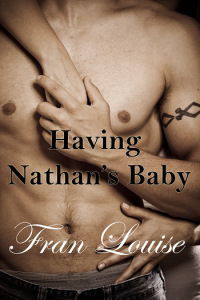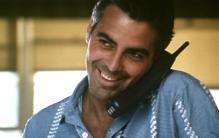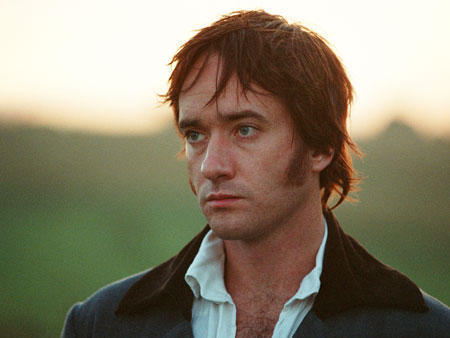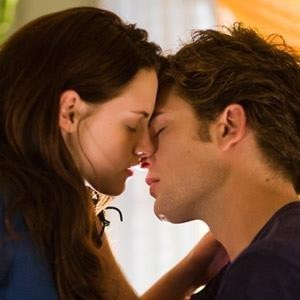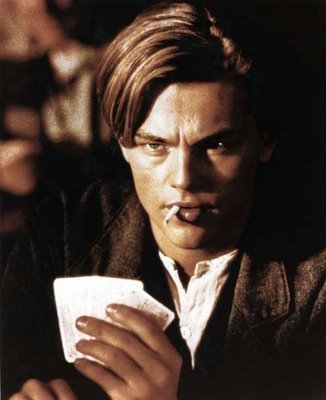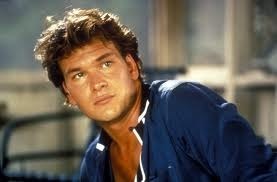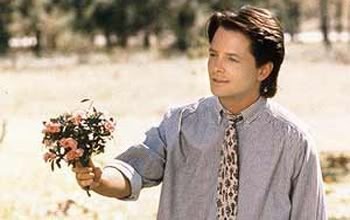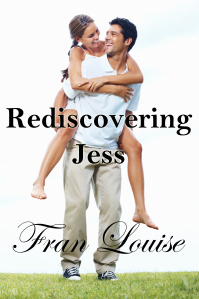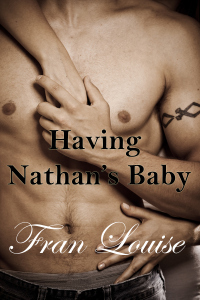Fran Louise's Blog, page 3
September 16, 2014
Featured Love Nest: New York City Townhouse

August 16, 2014
Housekeeping
I’m trying to simplify things. I have a Facebook page, Twitter, Google+, a website, a blog, and those are just the sites I remember off the top of my head. I created a monster, and I cannot control it. It has been rampaging across the Internet without direction, purpose or content. So apologies to those of you who stopped by my website at any time in the last six months and found an ‘Oops’ message. My website will now lead you here (or it will in less than 72 hours after a cache clean).

Image from Hyberbole and a Half


December 29, 2013
Interview with thEditors
Editing is hard, painful work – I think most of us would agree. As readers we expect, and should expect, a flawless finish on the page. Any author will tell you that it can take a small army to achieve that. I spoke to David Taylor at ThEditors, a professional editing service (links below) about his craft to get some feedback on the most common errors and tips to avoid them.
[Q] How did thEditors get started?
A few people came together and decided to pool resources and talents rather than going it alone. It paid off.
[Q] Could you describe the services you provide, and give some examples of how they make a difference to the manuscripts you’ve reviewed?
We provide numerous services designed to (hopefully) turn good manuscripts into great ones: copy & developmental editing, proof reading, manuscript assessments and critiques and as much discussion and brainstorming about the work as the author can handle!
We tend to concentrate on the following:
Pacing – Is the plot progressing quickly enough, or is it getting bogged down and veering off on tangents?
Characterisation – Have we got proper characters that the reader can relate to and understand, or do we have cardboard cut-outs. What does each character want? What are they afraid of? Are they driving the plot?
Emotions – We strive to find the most emotional aspects of the novel and bring them out more. Our aim is to turn a lump in the throat into a tear on the cheek.
Conflict – Where is the conflict? Where is the tension? What is forcing the reader to turn that page?
I will say that we generally don’t like to take on a job just for proofreading as there are ALWAYS things which can be improved and we hate ignoring obvious flaws or not talking about what could and should be improved and just correcting grammar and typos. Obviously we do correct grammar and typos and have a dedicated team in that area, but we normally like to give the manuscript a full and detailed edit before passing it on for the final bit of polishing.
[Q] As an author as well as an editor, what is your writing process?
My writing process is simply to take off my editing cap! Writing and editing are two very different things and I actually find it very difficult to switch between them. I’m normally unable to write and edit in the same day.
[Q] What are the most common mistakes you see in the manuscripts you review?
Authors make the same mistakes AGEIN and AGEIN and AGEIN!!!
That’s why we don’t just correct them, we point them out so the author sees what they are doing and can improve. We like to think that we are not just helping with the current manuscript but also with future ones that the author will produce.
As I’ve said already, each manuscript is different, but grammar and typos aside one of the most common things to crop up is simply far too much ‘tell’ and not enough ‘show’. An author once questioned me about this, asking what exactly I meant by ‘show don’t tell’ as it’s a pretty common saying but rarely explained. I decided to use an old example to SHOW her as opposed to TELLING her.
Show: Jack stooped as he entered the cottage.
Tell: Jack was very tall.
That’s all there is to it. In version (A) you are giving the reader information by SHOWING them something happening. In version (B) you are giving them information by … well, TELLING them the situation.
Another thing along similar lines that comes up a lot is what I like to call ‘author tell’. It’s an issue with dialogue. Basically this is where an author unnecessarily tells us what a character is feeling/thinking/doing after a particular piece of dialogue has already shown it happening:
“There’s no way John could have escaped,” Jack said. Jack couldn’t understand how John could have escaped.
One of the most common things I say when going through a manuscript is, ‘let the dialogue ‘speak’ for itself’. You’d be surprised how much it comes up.
Another thing which crops up ALL THE TIME with dialogue is the use of far too many synonyms for ‘said’. I saw it summed up nicely on twitter once (#badwritingtips I think)
“Use as many synonyms for said as possible,” he ejaculated.
Mary or Marty Sue characters are all too common as well. She’s beautiful, she’s intelligent, she’s kind, she’s successful, she’s quick witted, gets the last word in any disagreement etc. He’s handsome, he’s rich, he’s brave, he can beat anybody in a fist fight etc etc. PERFECT CHARACTERS ARE BORING CHARACTERS!
Superfluous characters that don’t engage the reader – one properly fleshed out character is better than two cardboard ones.
Characters that are there solely for the MC to bounce lines off – each character should have their own goals and ambitions, each character should want something (Yes, I know, Horatio may disagree!)
[Q] If you could give any advice to first-time authors, what would it be?
Three things:
Read, read, read and then read some more.
Write, write, write and then write some more.
No rule is written in stone. It’s okay to break them as long as you are aware that you are breaking them.
#
You can contact Dave and the team at ThEditors at the URL below:
If you’d like to read an excerpt of Shiri, Dave’s first novel, you can find it on your local Amazon Kindle store, or by visiting this link:
It’s none of their business that you have to learn to write. Let them think you were born that way.
- Ernest Hemingway


October 15, 2013
Having Nathan’s Baby – out now!
Click on the cover to see the Kindle edition. For formats other than Kindle, check out the Smashwords page!


July 3, 2013
How to … write a romantic hero

How to… write a romantic hero
Sounds simple, right? I mean, every single one of us has a crush. He’s tall, dark, blonde, handsome, rugged, quirky, a self-made man, debonair, geeky, funny, roguish, well-built, well-educated, lean… take your pick: there are a million different characteristics and traits out there that culminate in something you’ll like. Me, personally, I tend towards the more arrogant hero as opposed to the sensitive one. The funny thing is, though, I know plenty of writers who can make me fall in love with a sensitive hero. So what’s their secret? How do these authors take a bunch of traits that might otherwise leave you cold, and turn them into a well-rounded, attractive hunk of hot male specimen? Here are 10 ways to ensure your hero jumps off the page and grabs the reader’s heart:
1. He’s unmistakably masculine: romance is all about love. Love ushers in a whole host of physical attraction. So ladies, if men are your thing, he’d better be obviously male! That advice isn’t as obvious as it sounds. A hero’s virility has to be amplified – this isn’t real life, it’s romance! So whatever other traits you call to arms, make sure the reader knows he has all of the marks of a man.
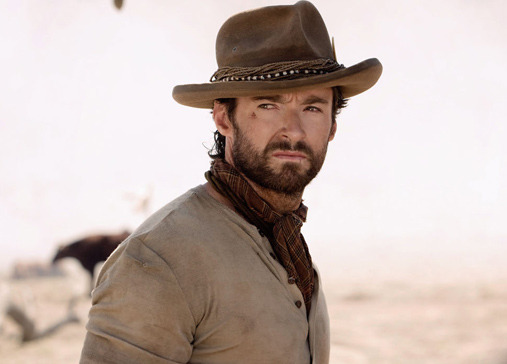
2. He’s not perfect: this is key. Sure, you can give him little perfections. He might be a wiz in the world of business; a musical prodigy; physically astounding. If he’s all these things? I can already hear you yawning. It isn’t perfection that makes any of us attractive, rather our uniqueness. That balance of beauty highlighted by flaws. It’s the humility of not being perfect that pushes us, makes try harder, be better. Make sure he has a few small traits that drive you crazy – crazy enough not to be able to stop thinking about him!
3. He’s into you, but not that into you: I’ve prayed, like every other woman out there, that he’s thinking about me. I want him to lose as much sleep as I am, missing him. He occupies my every thought, shines the light of day into my life. It’s normal, during a period of courtship, to lose yourself in someone else…. but don’t let it define you. In the same way, we want a man who’s got a full and satisfying life; who can throw down with the boys, look after his family and enjoy a hard day’s work. You might be his all, but you can’t be there all the time.
4. He’s a bit of a bastard: no? Listen, in real life, I’ll concede as much as any woman that you don’t need a bastard running rampant and messing things up. What’s more, you can’t get into a relationship thinking you can change someone, but still… wouldn’t it be nice if you could? There’s something deliciously thrilling about catching the man who couldn’t be caught; in unleashing the sensitivity behind the arrogance; in taming the beast. Remember though – this is about finding the good in people! He shouldn’t be a bastard through and through, just enough to bring some game to the table.
5. He’s driven: I’m not saying he has to be rich. He doesn’t have to be climbing mountain peaks, or inventing new technology, but he does have to have drive. What makes him get out of bed in the morning? This is what makes your hero truly interesting and attractive, on top of all of those other nice-to-look-at things. Is he an unwitting leader in the community because he cares about the well-being of others more than his own? Does he come from a ruthless family of profit mongers, forced into carrying a legacy that he wants nothing more than to cleanse through good deeds? Is he an environmentalist on a quest to educate the next generation? Whatever it is, make sure he inspires.
6. He’s on a journey: people are fascinating when they’re tested. Their reactions; the choices they make. If you want to get to know someone in quick time, watch them under stress. What better way to get to know our hero than to test him on the pages of your book? Of course, he’d better pass with flying colours 
7. Children and animals love him: this is an oft-used technique, and a good one! He doesn’t have to adore them in return, but we like a man who’s able to effortlessly charm children and animals. The opposite… well, that can be amusing, too – in small doses – to see his reaction! Does he take it personally? Will he try to modify his behaviour to gain favour?
8. He’s respected and/or feared: a man’s reputation is important. Why? Not because we care about what other people think, but because it reflects how he sees himself, firstly, and secondly gives us a measure of how he behaves on a regular basis. Here’s the thing, though: he doesn’t always have to be respected. Fear is a pretty good response to the kind of virility we want to see in our heroes. The question of how he uses that fear can make for a pretty exciting read…
9. He’s protective: what could be more satisfying that curling in the strong arms of the man you love? We want our heroes to have both the mettle and the physicality to be able to protect us. Don’t get me wrong – I’m all for looking after myself, and I’ll give as good as I can get! At the same time, who wouldn’t lay down their life for someone they love? Our hero had better be good that, if nothing else!
10. He’s a good kisser: yeah, and I hate to end on a superficial note, but all of the above is just wasted if he’s not a good lover. Again, I hate to state the obvious, but even if he starts out inexperienced or clumsy, he’d better redeem himself in this area before the end of the book! This is romance, ladies – we want a little bit of passion in there. So make him hungry, masterful, and above all, skilled in the bedroom…
Of course this list is neither exhaustive nor exclusive to every hero! What are the traits of your favourite heroes? When is the last time you fell in love on the page and why?
Take Our Poll


July 1, 2013
Top 10… Romantic Heroes
These are mine – feel free take the poll below and let me know if you agree.
TEN: Jack Dawson of Titanic (movie)
NINE: Mr. Darcy of Pride & Prejudice by Jane Austen
EIGHT: Zsadist of Lover Awakened by J. R. Ward
SEVEN: Sam Baldwin of Sleepless in Seattle (movie)
SIX: Edward Cullen of the Twilight series by Stephanie Meyer
FIVE: Johnny Castle from Dirty Dancing (movie)
FOUR: Dr. Benjamin Stone of What? Dead… Again? By Neil B. Shulman (also made into a movie: Doc Hollywood)
THREE: Noah Calhoun of The Notebook by Nicholas Sparks
TWO: Jamie Frazier of Outlander by Diana Gabaldon
ONE: Travis Maddox of Beautiful Disaster by Jamie McGuire


June 30, 2013
What is romance?
A friend recently complained to me that his wife was pressuring him to bring some romance back into their relationship. As the only romance author he knows, he asked me for advice: what should he do? Take her on a date night once a week? They regularly went to the cinema and for meals anyway, so how would a date night be any different?
Should he surprise her with flowers once in a while? There was a market nearby where she bought flowers almost weekly – it seemed to him the house didn’t need any more flowers. Perfume? Lingerie? New seduction techniques?
I stared at him blankly. Who said I was an expert? He’s a close friend, but it was the first time a man had asked me for objective, serious advice on this subject. Had it been it woman, I probably would have been able to commiserate with her on some intuitive level. With Joe, it was like trying to explain quantum physics to someone who only speaks Chinese.
It’s not the act, but the gesture, I started. Going to the cinema every Sunday evening gets boring. You bicker over which movie to see. You debate popcorn versus hot dogs. You sit in silence contemplating the following week. Hell, occasionally you catch him eyeing up the nubile twenty-something in the row in front. Not exactly a romantic occasion.
Date night at the cinema requires thought and attention. You choose a movie she’d love to see. You surprise her with a special meal beforehand. You talk. Yes, you ask questions and really talk to each other. Not about home maintenance or finances or childcare. You get to know each other again. Imagine she’s an alluring stranger you want to meet.
But he already knew her, Joe told me. The whole point of getting married was so that they could get past that awful getting-to-know-you period.
“But why is awful?” I said.
“It’s like a test,” Joe said. “Every guy will tell you this. It’s like going through a set of exams to become a husband. Once you’re qualified, why would you want to sit the exams again?”
Romance is, according to Joe, like a set of exams to men. An unavoidable series of obstacles women present to assess the man’s performance. If he does well, he proceeds to the next step. There is, however, apparently a finishing line: marriage.
It’s very true that most romance novels traditionally end somewhere between the proposal and honeymoon period. Now, I know there are plenty of exceptions to that rule these days, but let’s face it, ladies – we don’t often sit down to read a romance about a settled married couple enjoying the cathartic bliss of routine, do we?
So what is romance? Are women always the romantic receivers, and men the romantic givers? Do men have a version of it that doesn’t equate to emotional torture? I asked around.
*names have been changed to protect the identity of the generous friends and acquaintances who agreed to participate.
*
Joe: thirty-seven, living with Kelly for eleven years, married for eight, two children under six, both working full-time.
Me: So if Kelly was responsible for bringing back the romance into your relationship, what would you want from her?
Joe: I’d have to know first what Kelly thinks romance is. I’m guessing it’s more like excitement. Or suspense. Fun? Sex? If I had to give her a list, I’d say we both get a day off every week. Or every other week is more realistic, but time to regroup and do whatever we want, whether it’s with the kids or with our friends, or on our own. The date night could be a monthly thing. Honestly we couldn’t manage it any more often, we’re pretty busy. But she should plan half of them. That’s only fair! Not always on the same day or the same thing. She knows what I like: great food; taking a drive to the shore; sexy underwear! We can do the in-depth talking thing on her dates if that’s what she wants, but on my dates the tone would be more fun. Forget the day-to-day and all the responsibilities. Just take off and have fun, the way we used to before we got married.
*
Amanda, forty-one, recently divorced, two children between eight and thirteen.
Me: what is it like being back on the dating scene? Are you finding romance in your life again?
Amanda: (is silent for a long time, seems unable to find the words). No!
Me: Why?
Amanda: dating is hard work. Between the kids and work, I’ve practically had to give up sleeping and eating just to make time for it. I am optimistic, and I am open to romance, but it all feels a bit mechanical at the moment. A bit forced.
Me: what are you looking for?
Amanda: a connection, I think. For me, it’s romantic to feel a special connection with someone. Something completely normal like a walk in the park can be super romantic if you’re with someone you feel completely close to. But that’s the thing about dating – you’re totally in love so everything else gets pushed to one side. It’s easy to be romantic. Then real-life starts to take over and you end up arguing over the price of toilet roll in the middle of the supermaket.
*
Nate, thirty-one, living with his partner of three years
Me: are you and Zach still romantic?
Nathan: on my God, totally! We’re really, really romantic. All the time. I don’t see the point in being with someone if you can’t make it special. You may as well just be friends.
Me: Define romance.
Nathan: Hmm. I mean I guess it’s all about knowing the other person wants to be with you. Not just that they need you, but, you know, actually wants to be with you; they’re still interested in what you have to say, and they still enjoy being with you physically. Zach’s pretty good at letting me know. Last week we went to the farmer’s market – I know, the farmer’s market! But bear with me. We went to the farmer’s market, and he disappeared at one point and came back with this huge bag of limes, and he says we’re going to make caipirinhas. I swear, suddenly we’re, like, laughing our asses off in the middle of this market, because that first night we met was the night we had that thing at yours with the caipirinhas, do you remember? We went out to that club afterwards and I was trying to play it all cool in front of him-
Me: Oh my God, the night you leaned against those swing doors. One minute you were there and the next you weren’t.
Nathan: So embarrassing. So embarrassing! I still want to sink through the floor every time I think about it. (Takes a while to recover) But anyway, he does stuff like that all the time. Cute things, dumb little jokes and stupid presents, things like that. Things that don’t mean anything to anyone else on the surface. To me, that’s romantic. It means he’s still having fun. (Pauses) I’m never going to escape that ****ing swing door tragedy.
*
Jeanette, thirty-seven, single, no children
Me: you’re not seeing anyone right now. Do you still believe in romance?
Jeanette: Totally! Probably more than my married friends do.
Me: do you think it’s attainable in the long-term, or do you think that relationships are the death of romance?
Jeanette: that’s a horrible question. Ugh… I hate to say this, but honestly I don’t know if romance can survive a long-term relationship. It depends what romance is for you, I suppose. For you as an individual.
Me: what is romance for you?
Jeanette: I don’t know! I wish I hadn’t said that now… when I was younger I used to think it was when the guy buys you gifts, or whisks you away somewhere for the weekend. You know, that idea of being swept off your feet? Now, I think it’s got more to do with… (thinks for a long while) It’s not that I don’t think that all of that stuff is romantic – I do – but I also think that you have to find the romance in the day-to-day stuff. You know I was in the hospital last year, right? The thing is, when and they took me back to my room, Harry was there waiting me. To me that was romantic… (becomes emotional) The crazy thing is, I have lots of other memories of us together that are probably more traditionally romantic. We had this fabulous weekend in Prague. I remember we shared a bottle of champagne on the balcony, and we danced on Charles Bridge – all of this really cute stuff. We did a lot of things like that together, but when you asked me about this, the first thing that came into my head was when I saw Harry waiting in my hospital room. He waited eight hours. He didn’t leave the hospital once. (Reflects for a while) It doesn’t sound very romantic, but maybe romance is just consideration. Kindness and consideration for the person you love.
After I’d typed up Jeanette’s transcript I realised she basically questioned whether kindness and consideration could survive a long relationship. I went back to her later to ask about this, and gave her the transcript. She added the following caveat:
Jeanette: no, I didn’t want to suggest that people can’t be kind to each other over the long term! It’s true that marriage – any long relationship – can build up a resentments if you’re not careful, but I know a lot of couples who actually seem to respect each other more as time goes on. I think what I wanted to say is that your perceptions of romance change the longer you’re with someone. You stop trying to… You stop seeing the romance. You just get used to having this person who does things for you. It’s like you come to expect it.
Me: So what would you say to a woman who can’t see the romance because he leaves his dirty socks on the floor? You just have to remember that he stacked the dishwasher the night before?
Jeanette: wow, that’s depressing. I don’t miss that! Maybe she should remember that time he took the family cat to the vet to be put down because she was too upset to do it, or something like that. Chances are he loved that cat, too. If you keep remembering the little kindnesses, it’s easier to feel romantic.
*
Sarah, forty, married with three children between eight and thirteen, both adults work full-time
Me: Are you and Andrew still romantic?
Sarah: define romance.
Me: you define romance!
Sarah: yes, we’re still romantic. He takes good care of me. He travels a lot for work and I think that’s probably one of the reasons we still have a fairly good sex life. We don’t see each other as often as I’d like, but we make the most of the time we have together.
Me: so romance is all about sex for you?
Sarah: no, no, not just sex. But honestly, I’m not sure I’d want to have sex with him at all if he wasn’t romantic with me occasionally. I need to feel wanted. He’s pretty thoughtful about that.
Me: in what way?
Sarah: well…. for example, he always brings the kids, and me, something back from wherever he is. He never forgets. Or – I don’t know – if he goes out to get pizza or something special with the kids, then he’ll pick up something he knows I like, like my favourite ice-cream, something the kids don’t like so I can have it all to myself! He’s just thoughtful that way. I can’t think of any good examples. It’s just that he’s generally thoughtful. I don’t take it for granted at all. I know it’s romantic. I know a lot of my friends don’t get the same type of attention from their husbands or boyfriends. Does that sound smug? I’m just saying that I know it’s an effort of Andrew’s part and that he does it because he knows it makes me happy.
Me: and happy wives like to have sex regularly with their husbands.
Sarah: you said it, sister.
*
Anthony, thirty-eight, married with two kids, Cathy is a stay-at-home mom
Me: would you describe yourself as romantic?
Anthony: hmmm… yes, I guess.
Me: how?
Anthony: is this a hatchet job? Cathy’s going to read this and call me out for being a liar.
Me: then tell me the truth.
Anthony: Jesus, women and romance! Why is it so important? (Regroups good-naturedly) You know, I’m there for Cathy. If she gets into a scrape with her car, I do the insurance. I fix the shelves when she tells me to. I pick the kids up from the sitter. I’m not a deadbeat dad or a neglectful husband. This whole thing about romance, and all these books she reads all the time… I mean, what does she want? What do women want? They want us running around beating our chests and proclaiming undying love twenty-four hours a day? Cathy knows I’m there for her if she needs me. I don’t have to take out an ad in the paper and tell the world for it to be real.
*
Freddie, twenty-four, currently single
Me: what’s your idea of romance?
Freddie: anything that’ll separate a girl and her underwear as quickly as possible.
*
Jesse, twenty-three, currently single
Me: what’s your idea of romance?
Jesse: it’s about treating a girl well once in a while. Not too often, but you know, once in a while. If you do it too often she starts to expect it all the time.
Me: are you romantic?
Jesse: yeah. If I’m into the girl, yes.
Me: why?
Jesse: because it feels good. If you like a girl and you treat her well, she kind of… (Takes a while to find the words amid much amusement) She’s a lot more eager to make you happy. But it’s not just that. It feels nice. It makes you feel closer to her. It makes the sex special. And doing nice things for people makes you a better person.
*
Imogen, sixteen, currently single
Me: what’s your idea of romance?
Imogen: some dude in a suit carrying a bunch of roses, hoping to get laid! Romance is so cheesy. It’s so false.
Me: why?
Imogen: because it’s embarrassing. It’s corny. I’m not going to like some guy just because he bought me a bunch of lame flowers, or chocolates I don’t even like.
Me: didn’t you think that the Twilight books were romantic?
Imogen: that’s not even remotely the same thing.
Me: why?
Imogen: because they were in love before any of the romance stuff started, for one thing. I wouldn’t even call it romance. There’s no way Bella would have liked Edward if he’d turned up at school one day with a stupid bunch of flowers – I mean, come on. That’s unbearable. If it’s romantic at all, it was romantic because he would have given up his life for her. It wasn’t some cheap gift he picked up on the way over to her house because he wanted to sleep with her. She gave up her whole life to be with him, and he would have done the same.
*
Jordyn, thirty-two, recently divorced, single mom
Me: have you given up on romance?
Jordan: no way! Just the opposite, actually.
Me: you said recently that Ford (Jordan’s ex-husband) was very romantic, but that it was just a band-aid for the relationship.
Jordan: yeah…. The thing is, there’s real romance and there’s that kind of empty romance where it’s just a lot of things. Towards the end they were empty gestures. It was a bit like he’d read a manual about how to keep a woman happy. I mean, I admit, I probably gave him mixed messages. I did love it at first. It was like a dream! He literally used to shower me with gifts. But, after a while, the jewellery and the cute little gestures and all of this stuff doesn’t mean anything if the other person absent emotionally in the relationship. My God, I sound so ungrateful! But I always felt like he was doing this stuff because he didn’t have anything else to give me. It was kind of sad, really. But I haven’t given up on romance. I still love all of that. I just… I guess I’ll be able to recognise it better next time. When it’s real romance and when it’s just… a distraction.
*
So, what is romance for you? I now have less idea than I did before the exercise started… It seems to depend on your age, marital status, and whole bunch of complicated emotional baggage that might have been handed down to you through generations.
There is one constant. Talking about this topic, even with the younger group, made everyone happy, even if their own experiences weren’t altogether positive. It made everyone stop, analyse one of the most important relationships in their lives, and look for the good in it. Admittedly some of the participants found that area lacking, but there was a tremendous sense of hope behind the search; no one presumed romance was beyond them, or would be unattainable in the future, at any age.
Even the male participants (of whom not all are listed above, I may do a sequel to this article if anyone is interested in hearing more opinions) who felt pressured by the topic and the whole notion of romance in general, stopped at a certain point and admitted that romance has a sexy side to it that is very alluring. Romance may be difficult to master, but it is a lot of fun to try.
Romance gives us an opportunity to treat the people we love well. Like all of the nicer things in life, it needs to be respected, and enjoyed in moderation.


June 27, 2013
Interview with Fran Louise
Fran Louise sat down to answer a few questions on her work – we’ll be posing these questions to guest authors in the coming months. Here’s Fran’s take on things to get us started.
Question: When did you know you wanted to be a writer?
Fran: When I was thirteen, during the summer holidays I was given an assignment by a brilliantly motivating English teacher to write a novel. Any subject, any genre. My friend and I were avid readers of her mother’s Mill & Boon books at that stage – we would steal them and read them aloud in a whisper to each other at night to much giggling and gasping at the chaste love scenes – and so she and I embarked on our first romance novels. I think we wrote ten thousand words, so it was more of a novella, but I realised at that stage I could write a book. I never looked back.
Question: How do you chose your titles?
Fran: I use all kinds of codes to identify my books while they’re in draft format – sometimes the hero’s name, sometimes the place. The title is the second-last decision, just before the cover. I’m a bit old school with my titles; given my background, I tend to veer towards a Harlequin / Mill & Boon style! It’s very much a case of ‘it does what it says on the tin’ when it comes to this area.
Question: Which authors inspired you?
Fran: My favourite romance novel for many years was a Mill & Boon Bestseller Romance from the eighties called ‘The Winds of Winter’ by Sandra Field. I’m a sucker for a vaguely arrogant hero… not sure what that means! I love Ms. Field’s style, in the same way as I like a lot of authors from that period in romance fiction. I guess the romance was chaste but the storytelling was packed with subtle emotion. That said I’m a huge fan of plenty of contemporary authors like Linda Lael Miller and Robyn Carr. The characters and the storylines have come a long way in the last couple of decades; single moms; single dads; divorces; one-night stands; unplanned pregnancies! I love that both Ms. Miller and Ms. Carr don’t shy away from the grittier parts of life to give real emotional depth to both their characters and the plotlines. So I guess, in my own writing, I walk a line somewhere between a fascination for those traditional gender roles that men and women often slide into when romance enters the equation, against the backdrop of a very modern world where the struggles for both genders have diverged.
I’d also like to add that with the advent of the Internet, I’m very inspired by the community of self-published authors out there who hustle every day to ply their wares. I feel like I’ve joined an inspired group! The exchange of ideas and the support you receive from other authors – and even avid readers – just makes the whole process so much more rewarding. I get a lot of inspiration from there.
Question: Can you describe your writing process?
Fran: I generally write the first draft of my books in a handful of days – the final versions are usually in the region of 55-60,000 words. I can bash out eighty-thousand words pretty quickly when the inspiration strikes. I always have a crush on someone/something, and so that first draft is really just a fleshing-out exercise! I’ll leave it for a week or so and then do a couple of passes on the book after that, tidying up obvious errors and highlighting passages, plotlines that don’t work. Then I let it bake. After a reasonable period has gone by, I review it again with fresh eyes and generally rewrite! For me, the priority is the emotional journey of the main characters. The arc of their relationship, the obstacles they face and the structure of the plot, all have to work towards some form of emotional discovery. Once I have the final draft, I run Margie Lawson’s Deep Editing process* on the manuscript. This part is hard work. I am still very much at the learning stage with it, but each new book takes me a little further into the process.
Question: So what are you working on now?
Fran: I’ve just finished a surfing romance! It’s at the baking stage. Once the promotion for Having Nathan’s Baby is finished, I’m hoping to write a series, inspired by the fantastic catalogues of Ms. Miller and Ms. Carr mentioned above. I think both of these women have excellent careers – they are accomplished writers and great spokespeople for both their books and the industry, and you feel genuine warmth from them as fans. I’m not suggesting of course that I’ll come anywhere close to reaching that level of expertise, but I’m inspired enough to give it a go.
Fran’s Bio:
Fran Louise is Scottish by birth. She’s lived in several countries across Europe and describes travelling and living abroad as her raison d’etre. She’s inspired by discovering new places, and meeting new people, and loves learning languages. She currently lives in France, in the south-east corner of the country, and writes her books on a sun-dappled balcony overlooking the hills.
Fran’s website: http://www.franlouise.com
Fran’s blog: http://franlouiseblog.wordpress.com/
Having Nathan’s Baby: out August 14, 2013
Rediscovering Jess: http://www.franlouise.com/#!buybooks/c1r2g
Wrangling with the Lawyer: http://www.franlouise.com/#!buybooks/c1r2g
*For more information on Margie Lawson’s Deep Editing, click here: http://bit.ly/ZcSi3x.


with Fran Louise
Fran Louise sat down to answer a few questions on her work – we’ll be posing these questions to guest authors in the coming months. Here’s Fran’s take on things to get us started.
Question: When did you know you wanted to be a writer?
Fran: When I was thirteen, during the summer holidays I was given an assignment by a brilliantly motivating English teacher to write a novel. Any subject, any genre. My friend and I were avid readers of her mother’s Mill & Boon books at that stage – we would steal them and read them aloud in a whisper to each other at night to much giggling and gasping at the chaste love scenes – and so she and I embarked on our first romance novels. I think we wrote ten thousand words, so it was more of a novella, but I realised at that stage I could write a book. I never looked back.
Question: How do you chose your titles?
Fran: I use all kinds of codes to identify my books while they’re in draft format – sometimes the hero’s name, sometimes the place. The title is the second-last decision, just before the cover. I’m a bit old school with my titles; given my background, I tend to veer towards a Harlequin / Mill & Boon style! It’s very much a case of ‘it does what it says on the tin’ when it comes to this area.
Question: Which authors inspired you?
Fran: My favourite romance novel for many years was a Mill & Boon Bestseller Romance from the eighties called ‘The Winds of Winter’ by Sandra Field. I’m a sucker for a vaguely arrogant hero… not sure what that means! I love Ms. Field’s style, in the same way as I like a lot of authors from that period in romance fiction. I guess the romance was chaste but the storytelling was packed with subtle emotion. That said I’m a huge fan of plenty of contemporary authors like Linda Lael Miller and Robyn Carr. The characters and the storylines have come a long way in the last couple of decades; single moms; single dads; divorces; one-night stands; unplanned pregnancies! I love that both Ms. Miller and Ms. Carr don’t shy away from the grittier parts of life to give real emotional depth to both their characters and the plotlines. So I guess, in my own writing, I walk a line somewhere between a fascination for those traditional gender roles that men and women often slide into when romance enters the equation, against the backdrop of a very modern world where the struggles for both genders have diverged.
I’d also like to add that with the advent of the Internet, I’m very inspired by the community of self-published authors out there who hustle every day to ply their wares. I feel like I’ve joined an inspired group! The exchange of ideas and the support you receive from other authors – and even avid readers – just makes the whole process so much more rewarding. I get a lot of inspiration from there.
Question: Can you describe your writing process?
Fran: I generally write the first draft of my books in a handful of days – the final versions are usually in the region of 55-60,000 words. I can bash out eighty-thousand words pretty quickly when the inspiration strikes. I always have a crush on someone/something, and so that first draft is really just a fleshing-out exercise! I’ll leave it for a week or so and then do a couple of passes on the book after that, tidying up obvious errors and highlighting passages, plotlines that don’t work. Then I let it bake. After a reasonable period has gone by, I review it again with fresh eyes and generally rewrite! For me, the priority is the emotional journey of the main characters. The arc of their relationship, the obstacles they face and the structure of the plot, all have to work towards some form of emotional discovery. Once I have the final draft, I run Margie Lawson’s Deep Editing process* on the manuscript. This part is hard work. I am still very much at the learning stage with it, but each new book takes me a little further into the process.
Question: So what are you working on now?
Fran: I’ve just finished a surfing romance! It’s at the baking stage. Once the promotion for Having Nathan’s Baby is finished, I’m hoping to write a series, inspired by the fantastic catalogues of Ms. Miller and Ms. Carr mentioned above. I think both of these women have excellent careers – they are accomplished writers and great spokespeople for both their books and the industry, and you feel genuine warmth from them as fans. I’m not suggesting of course that I’ll come anywhere close to reaching that level of expertise, but I’m inspired enough to give it a go.
Fran’s Bio:
Fran Louise is Scottish by birth. She’s lived in several countries across Europe and describes travelling and living abroad as her raison d’etre. She’s inspired by discovering new places, and meeting new people, and loves learning languages. She currently lives in France, in the south-east corner of the country, and writes her books on a sun-dappled balcony overlooking the hills.
Fran’s website: http://www.franlouise.com
Fran’s blog: http://franlouiseblog.wordpress.com/
Having Nathan’s Baby: out August 14, 2013
Rediscovering Jess: http://www.franlouise.com/#!buybooks/c1r2g
Wrangling with the Lawyer: http://www.franlouise.com/#!buybooks/c1r2g
*For more information on Margie Lawson’s Deep Editing, click here: http://bit.ly/ZcSi3x.



